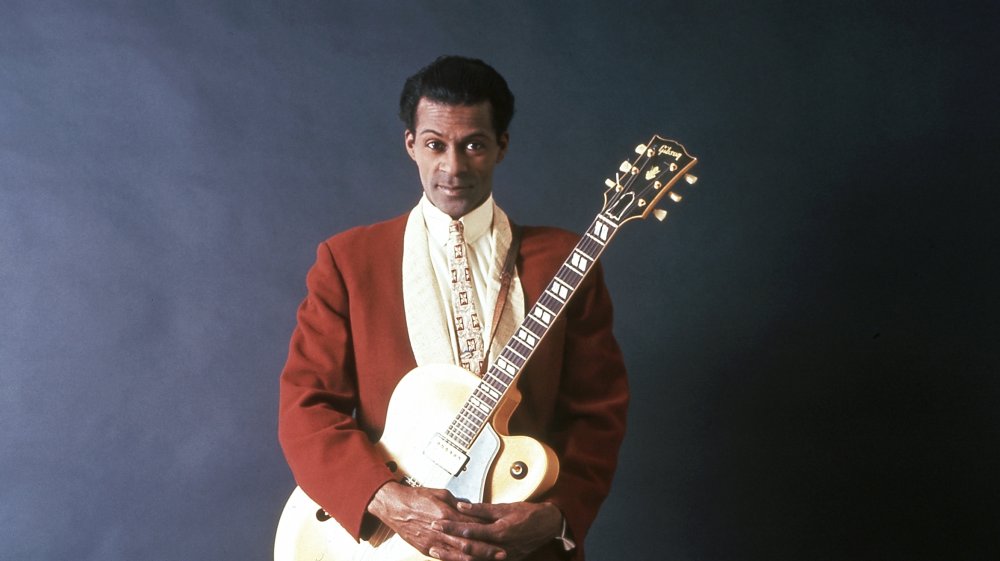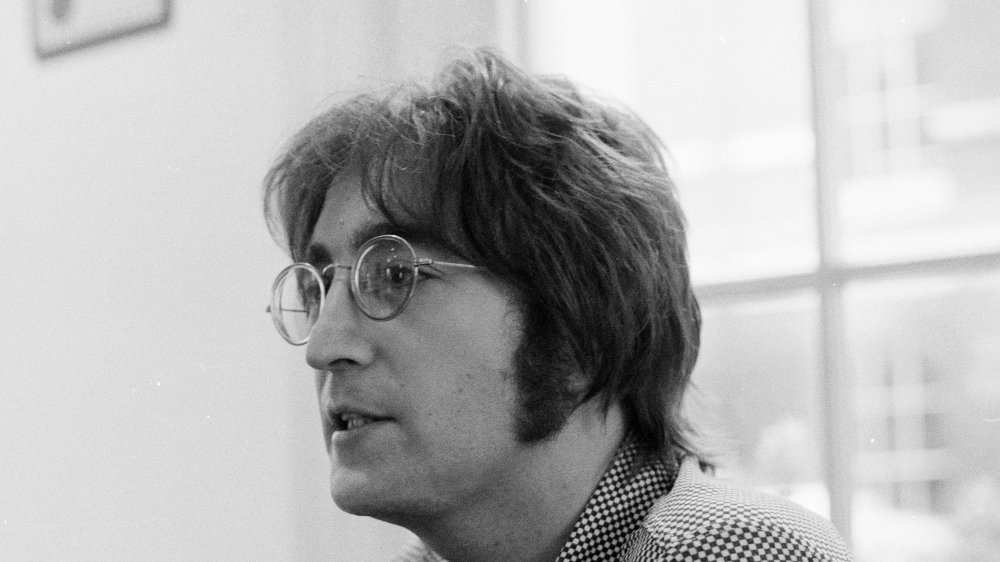Here's How The Beatles Ripped Off Chuck Berry
"Come Together," by the Beatles, is a true jam, so much so that the Arctic Monkeys's cover was played in the opening ceremony for the 2012 Olympics. Written for Timothy Leary's campaign against Ronald Reagan's governorship before he was imprisoned for possessing cannabis, according to the Beatles Bible, "Come Together" was later listed by Rolling Stone as the ninth best song the band ever put out ... oh, and it also pulled heavily from Chuck Berry's "You Can't Catch Me," to the point where one could claim plagiarism.
At the time of recording, the song was conceived by John Lennon as a Chuck Berry styled rocker. Paul McCartney pointed out the dangerous similarities between the two, according to the Paul McCartney Project, prompting them to improvise some differences into the song. Talking about it later, McCartney recalled that "I suggested that we tried it swampy — 'swampy' was the word I used — so we did, we took it right down. I laid that bass line down which very much makes the mood." These changes, however, did not keep the song out of court. The melodic similarities that the Beatles couldn't erase, and the near identical form that Lennon's "Here come old flat-top/He come groovin' up slowly" and Berry's "Here come a flat-top/He was movin' up with me" shared, were seized upon by Morris Levy of Big Seven Music, the publisher of "You Can't Catch Me."
A lawsuit pended, but, it should be noted, Chuck Berry had nothing to do with it.
Coming together (to a deal)
John Lennon fumed a bit about the lawsuit, readying a natural response to an accusation of plagiarism: "I could have changed it to 'Here comes old iron face' [instead of 'Here comes old flat-top], but the song remains independent of Chuck Berry or anybody else on earth." Still, he managed to settle the case out of court by coming to an arrangement with Levy. For dropping the case against him, Lennon agreed to cover some of Levy's songs on his next album, according to Colorado Public Radio, with an appropriate amount of money going to Levy, of course.
In 1975, Lennon released Rock 'n' Roll, and upheld his end of the bargain by covering "Angel Baby," "Ya Ya," and, appropriately enough, "You Can't Catch Me." The lawsuits didn't end there, however, as Lennon had sent a rough copy of the album to Levy for a look over but the rest of the deal went through. Wanting his money, Levy released the demo as an album called Roots: John Lennon Sings the Great Rock & Roll Hits, according to TodayIFoundOut, while also suing Lennon for breach of contract. Lennon counter-sued for unlawful use of his likeness and the reputation damages done by the release of a rough recording. In the end, Lennon was ordered to pay Levy $7,000 for breach of an oral agreement, but Levy had to pay Lennon $110,000 to compensate for lost income. Lennon also won $42,000 in punitive damages.

